Alcohol has always been one of Britons’ favourite ways to unwind, relax and share with friends after a long day of work or over the weekend to celebrate football team wins, drown sorrows and so much more. Alcohol consumption is embedded in our culture as much as tea is.
Although the NHS recommend us not to drink more than 14 units of alcohol a week (six pints of beer or seven medium-sized glasses of wine), according to research commissioned by Alcohol Change UK, 24% of adults in England and Scotland regularly drink much more, with 27% of drinkers in Great Britain binge drinking on their heaviest drinking days (over eight units for men and six for women).
Lockdown has had a terrifying effect on how much we drink in Britain. The same organisation saw a 242% rise in visits to the advice and support pages on their website between 23rd March and 23th June compared to the same period in 2019. It appears that one in five of us drank to handle stress or anxiety during lockdown. Parents of the under-18s top the list, followed by non-parents, with parents of adult children drinking the least.
Up to 76% of alcohol consumption is under-reported.
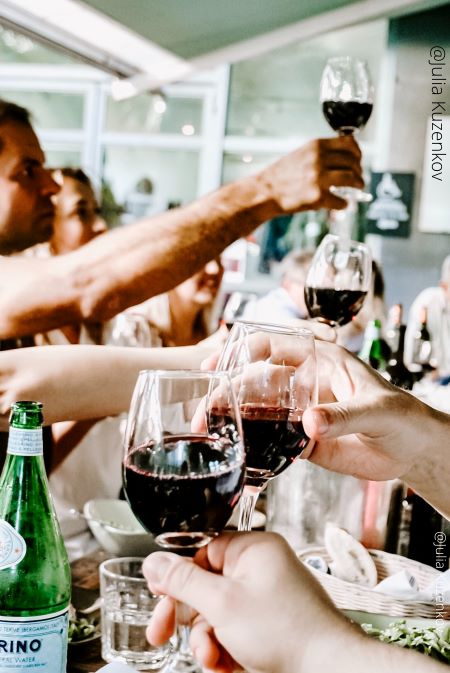
Now, if we take into consideration one of the perennial mysteries of alcohol research, that is, that when you tally up all the booze that people report consuming when they are surveyed about their drinking habits, it rarely adds up to even half of the alcohol sold, it paints a much more chilling picture. In fact, up to 76% of alcohol consumption is under-reported.*
In the initial wave of the COVID-19 pandemic, the Office of National Statistics reported a 10.3% increase in supermarket alcohol sales and a 31.4% annual increase in alcohol store sales in March 2020. In an article published in the British Medical Journal (October 26th, 2020) the Liver Unit at King’s College University Hospital, London, revealed that referrals from their network more than doubled in June 2020 compared with June 2019.
I’ve personally experienced an increase in my drinking over lockdown: Zoom parties, stress, boredom… all of them seemed to involve a glass of wine or a G&T, or two, or three… I realised though that a great deal of the habit was psychological, it was about having something to drink while chatting to friends or watching TV, so I started to explore non-alcoholic options. I must say that the landscape is not that exciting and I struggled to find anything I liked but Coke Zero and Waitrose’s lemonade (neither of which are great with food by the way) so I was about to give up when a friend told me about a new brand, Jukes Cordialities, launched by wine expert and author Matthew Jukes, who has worked in the wine industry for over 30 years and written hundreds of articles, dozens of reports and 13 books on the subject, on top of hosting a couple of radio programmes and his own TV series. He estimates he tastes around 40,000 bottles of wine every year.
When asked why a guy who has made his career thanks to wine would launch a brand of non-alcoholic drinks, he said, “It is all about taste, about the desire to bring to the world of non-alcoholic drinks the romance and detail of the wine world. I wanted to create an alternative to wine that had the same magic, the same mouthfilling power.” Furthermore, they are a low-calorie alternative to booze, as all Jukes have less than 18kcal per serving.
The base of Jukes drinks is top quality organic apple cider vinegar blended with fruit, vegetables, herbs, and spices. Apple cider vinegar is widely believed to have various healthful properties, including antimicrobial and antioxidant effects, aiding weight loss, reducing cholesterol, lowering blood sugar levels, and improving the symptoms of diabetes. From a taste point of view, the vinegar selected by Matthew has a very faint smell but a very long and clean finish. It allows the other ingredients to line up beautifully on the palate, adding dryness and length and making Jukes a great accompaniment to food.
Each Jukes involves approximately two dozen fruits, vegetables, fresh and dried herbs, spices, and flowers, sourced from the same merchants who supply London’s finest restaurants. With so many ingredients involved, Jukes have become very popular as mixers, particularly with vodka drinkers. In America, mixologists in bars are all over them.
Matthew mentioned that it is worth trying them with hot water, like an infusion or tisane. Since the fruits, vegetables, herbs, and spices used to produce Jukes have not been processed in any artificial way, just pressed and kept extremely cold, most of the micronutrients in these beautiful ingredients are preserved (vitamins, minerals, and antioxidants).
Each Jukes involves 24 fruits, vegetables, herbs and spices.
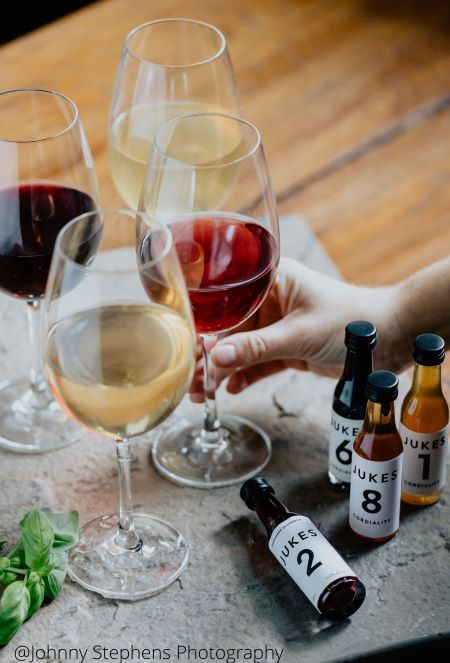
Unlike any of the other non-alcoholic drinks I’ve ever tried, Jukes truly pair well with food, each of them in a very different way, pushing their personality through and bringing out the best in the dishes they accompany.
Jukes 1, also known as “The White” is centred around a citrus and herb theme with touches of peach, cucumber, plum, apple and pineapple. It goes really well with fish, mixed with ice-cold water in a large wine glass that you can swirl, or, if you are having a lazy afternoon in the sun, served in a tall glass with sparkling water and ice, what heightens its citrus and herbal notes. Served this way, it also works with spicier dishes and contemporary Asian fusion cuisine.
My friend Ellie thinks it is better with tonic water as it feels more like a cocktail. In fact, Heston Blumenthal serves it at his restaurant Dinner at the Mandarin Oriental, London, only with tonic water and in special glasses.
With layered red fruit flavours and a faint smokiness, Jukes 2 is ideal for autumn and definitely my favourite. Very dry, almost like a Sangiovese, with notes of pomegranates, raspberries, red apples and rosehip, it pairs wonderfully with pasta dishes and seasonal produce like mushrooms and game. Matthew recommends it for tomato-rich dishes, which are always difficult to match as well as with Chinese and Indian food.
What I like about this variety is how it changes in flavour depending on what you mix it with. With sparkling water, it kind of goes a bit “loco” and becomes ideal for super spicy dishes and street food as it cuts through sauces, mayonnaise… almost anything.
Much deeper, fruity and spicy in style, Jukes 6 is the one that most resembles wine. As such, it pairs beautifully with beef dishes and darker, more intense meats like venison. I agree with Matthew that 6 doesn’t go all that well with just sparkling water but it works if you mix half still and half sparkling. It is the best way to appreciate its depth and multiple berry tones.
Jukes 8, the rosé in the family, launched last summer and it was an immediate success, to the point that is currently out of stock, mostly due to massive demand in America. Pale in colour, almost coral, like a Provençal rosé, the main thrust is made up of watermelon, melon, pear, rhubarb and apple. Matthew made sure there is a faint saline/ozone tang, which hints at a shoreline vibe while ensuring that the palate is super-sleek, firmly dry and very long. I think the best way to drink it is with ice-cold still water, being as it is a very gentle, delicate, and refined drink. Magnificent with crustacean, seafood dishes, gentle salads… in short, this is the Jukes to enjoy a long summer afternoon drinking with friends and still walk out alive and kicking, instead of legless. My suggestion is you alternate one glass of wine with two of Jukes 8 so instead of getting plastered as you’d do with good old rosé, you are keeping hydrated and providing your body with beneficial micronutrients from all the fruits, vegs and spices that make up Jukes 8.

I’d recommend you start with a tasting box (£38), experiment at will and discover how best you like them. If nothing else, you’ll have fun trying something new that doesn’t have a guilt chip attached to it.
Words: Julia Pasarón
*Prof Keith Humphreys (June 9th 2014). People Severely Underestimate — or Lie About — How Much They Drink. (The New York Magazine)





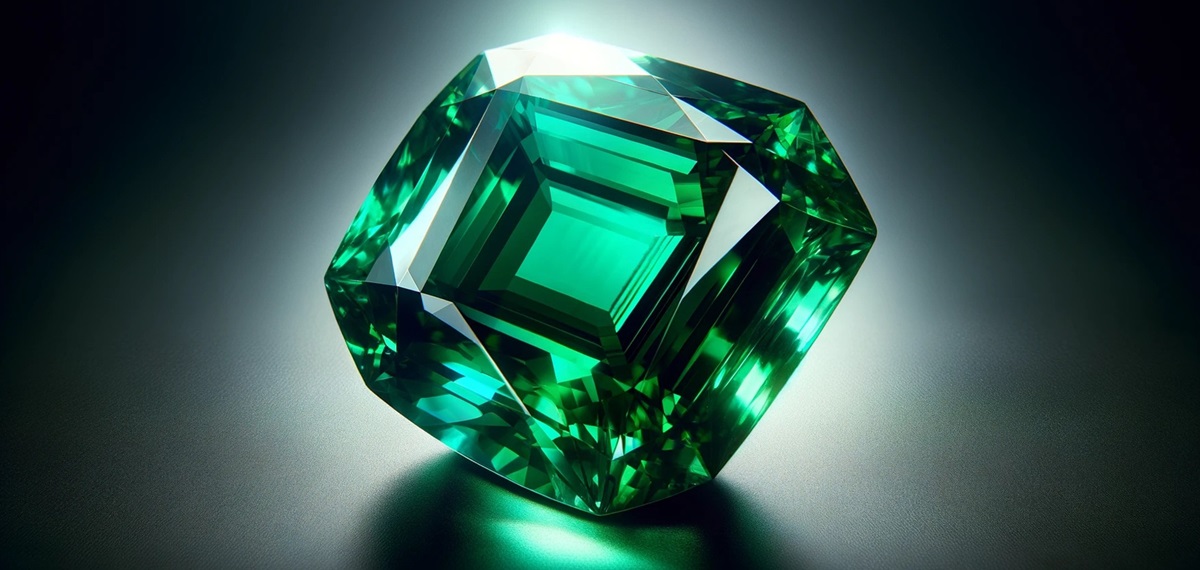

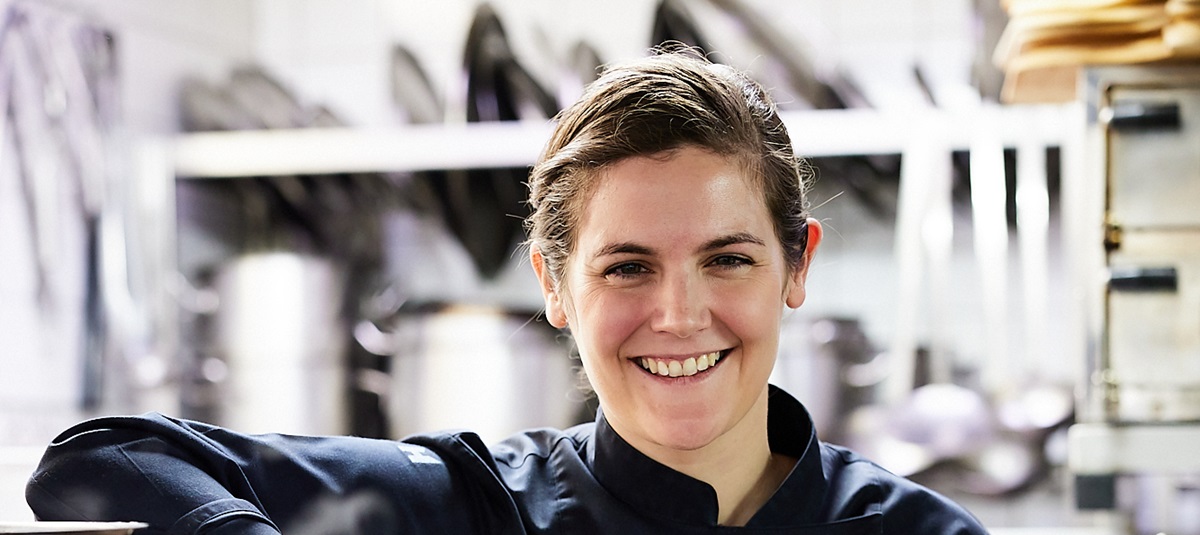
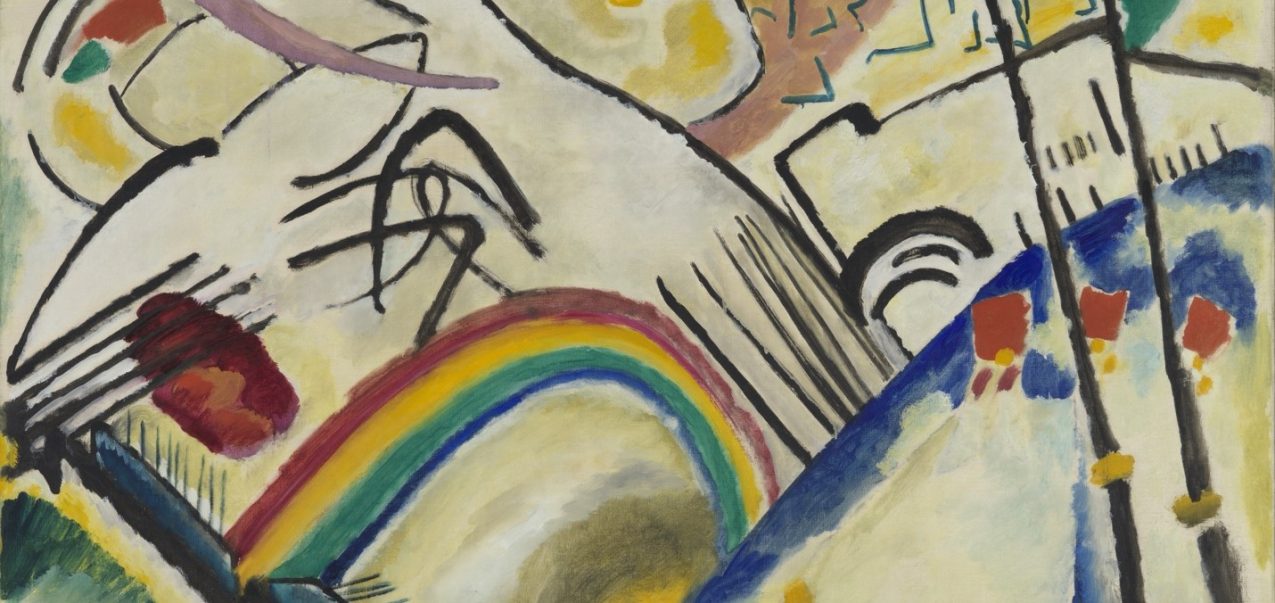

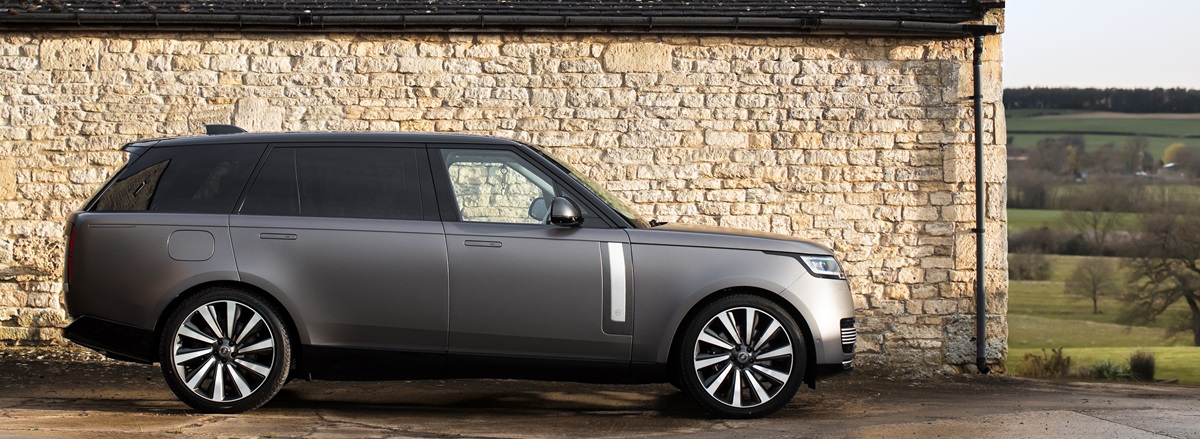
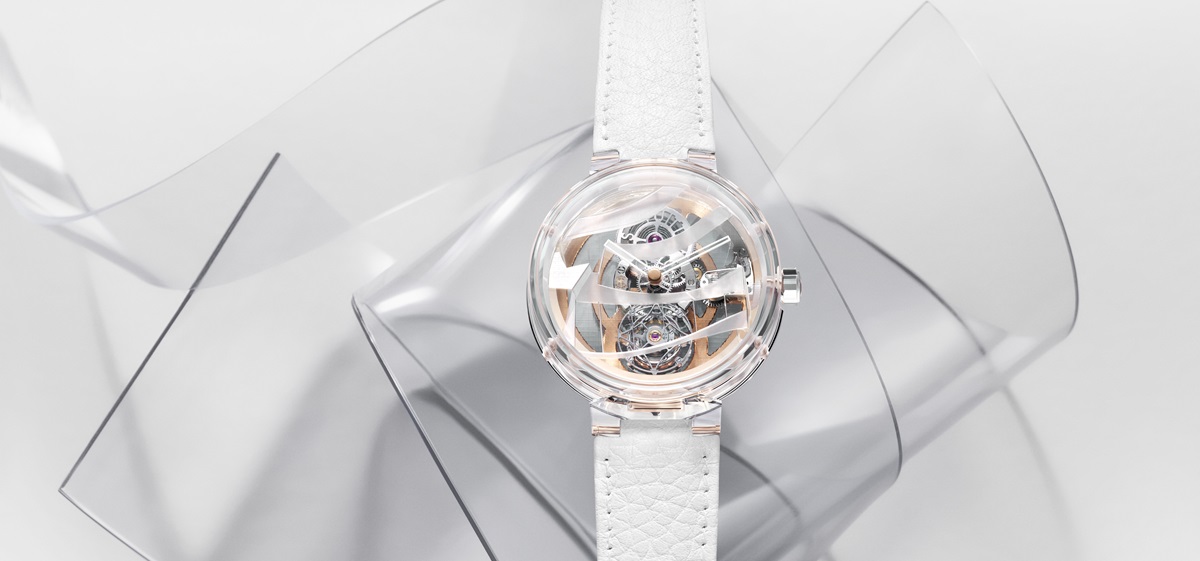
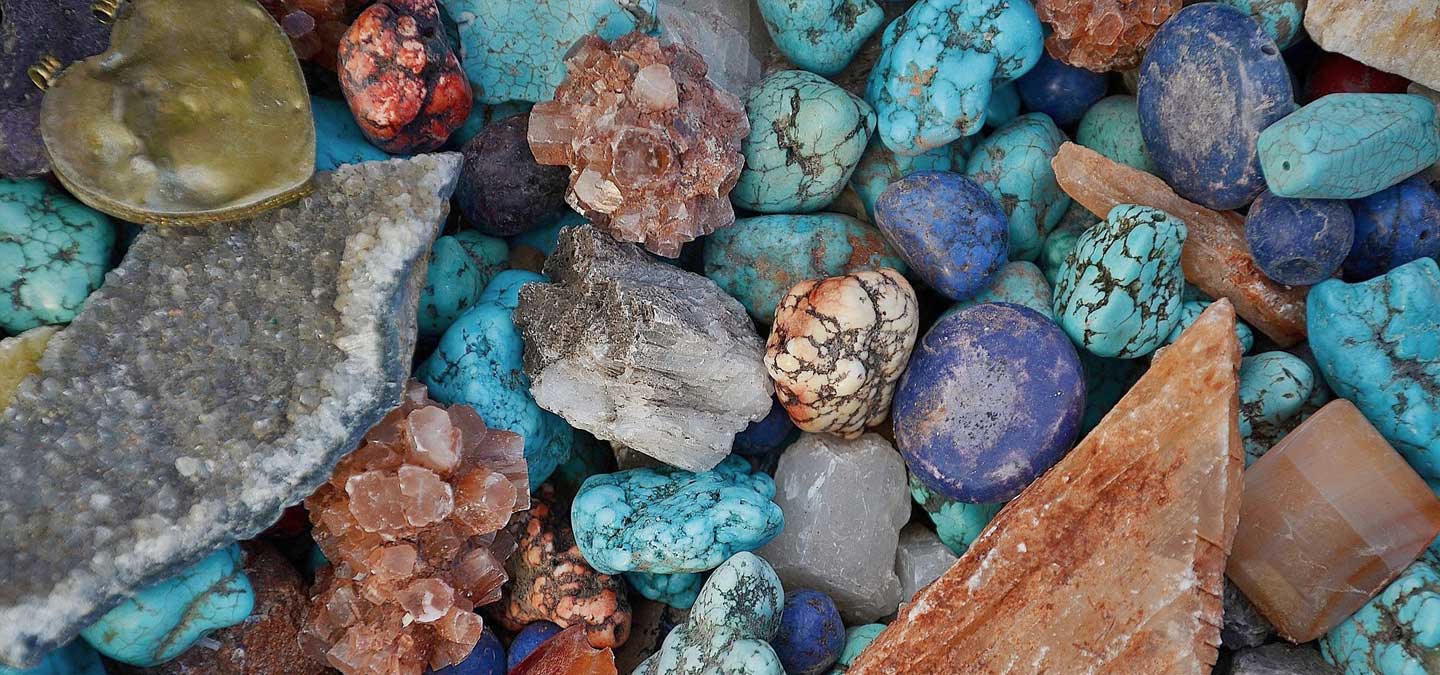

Show Comments +